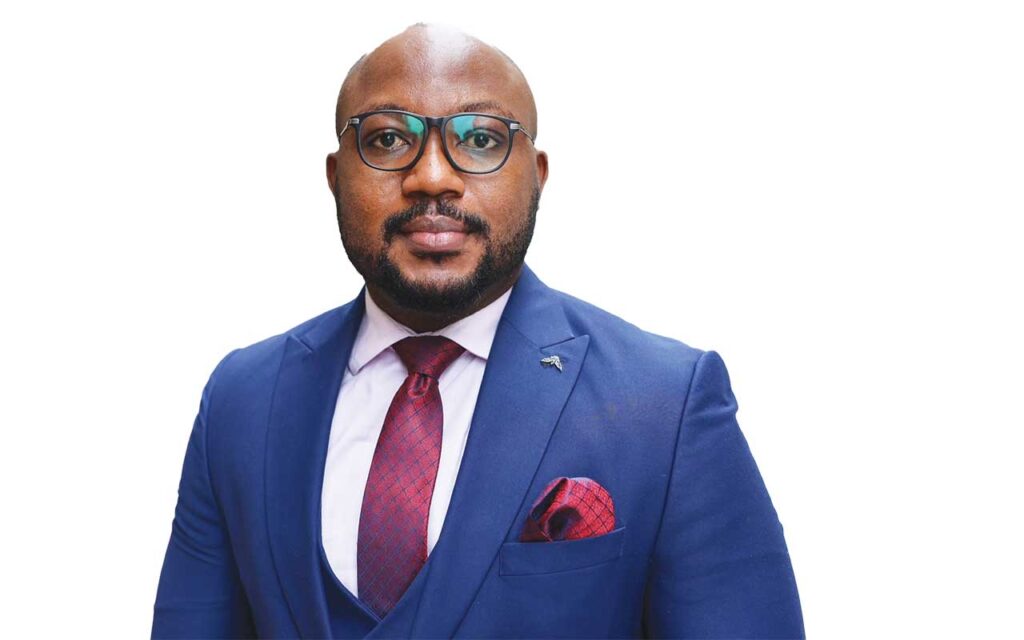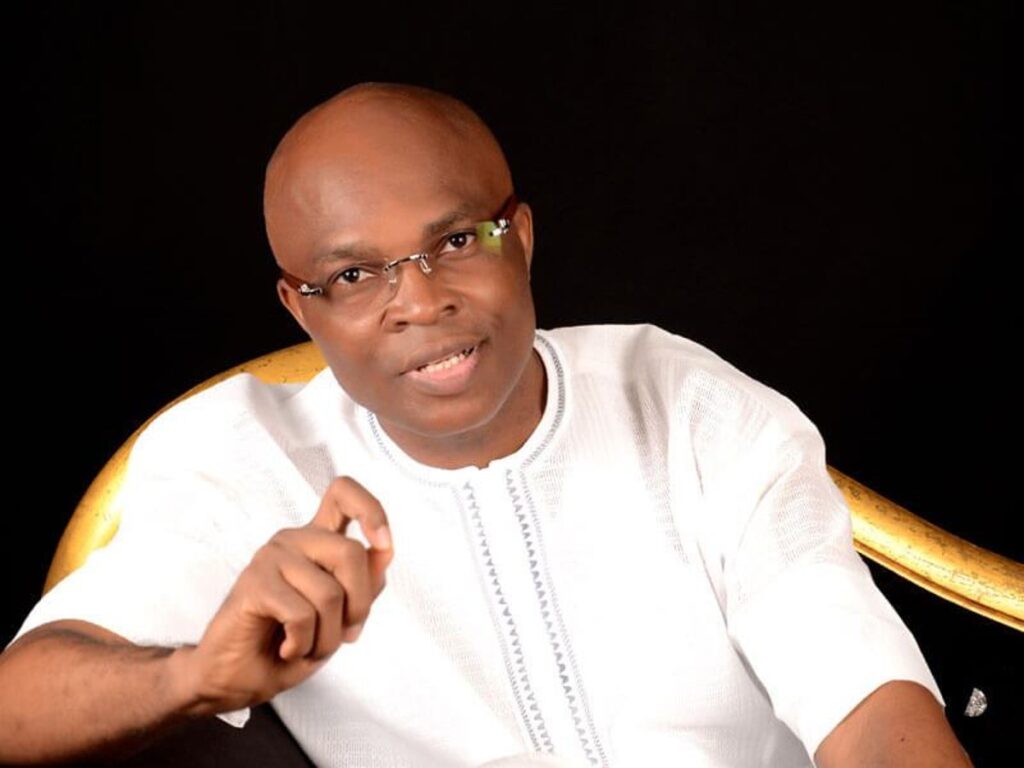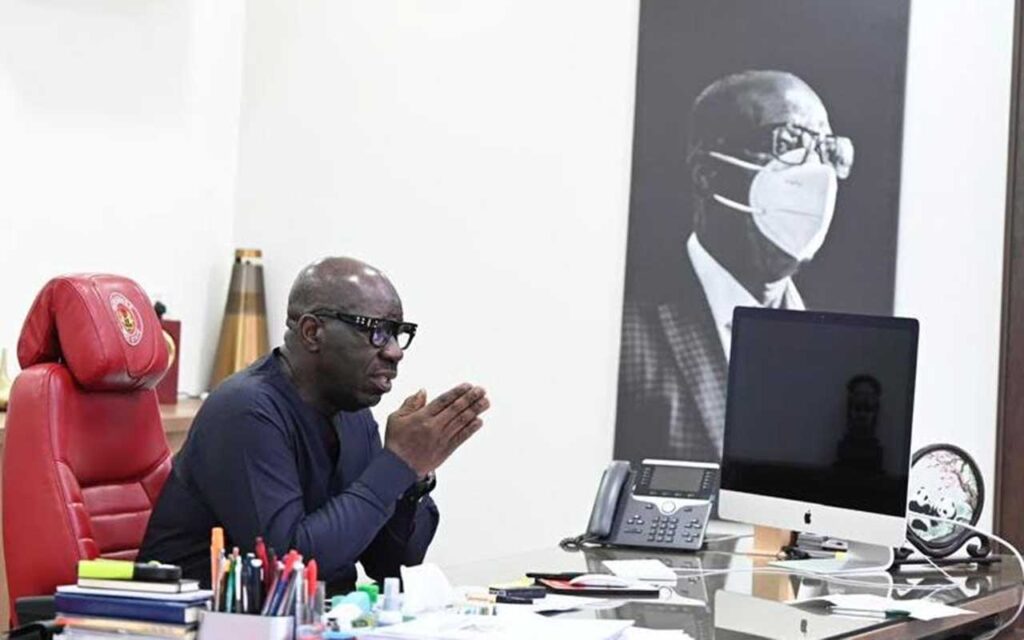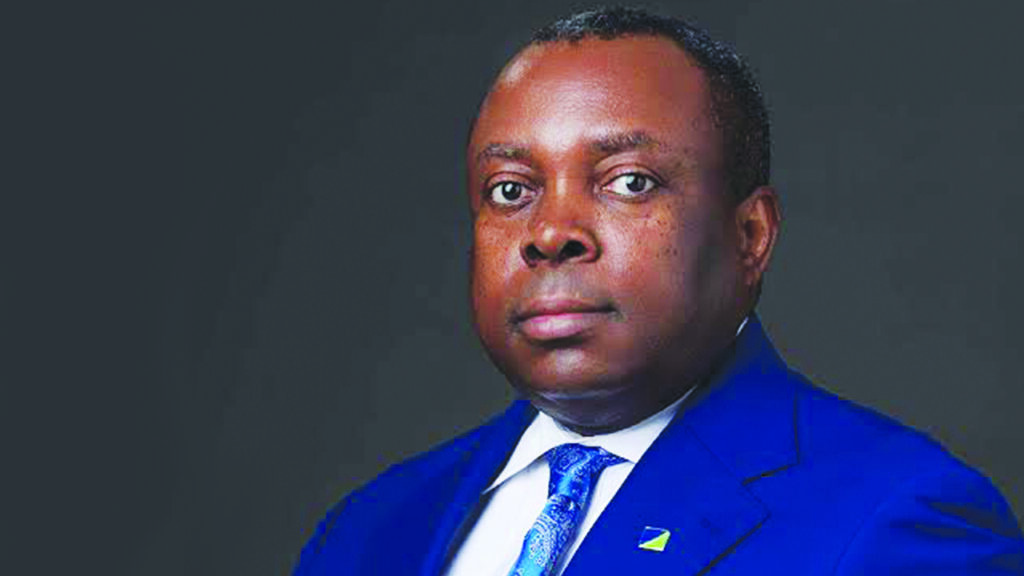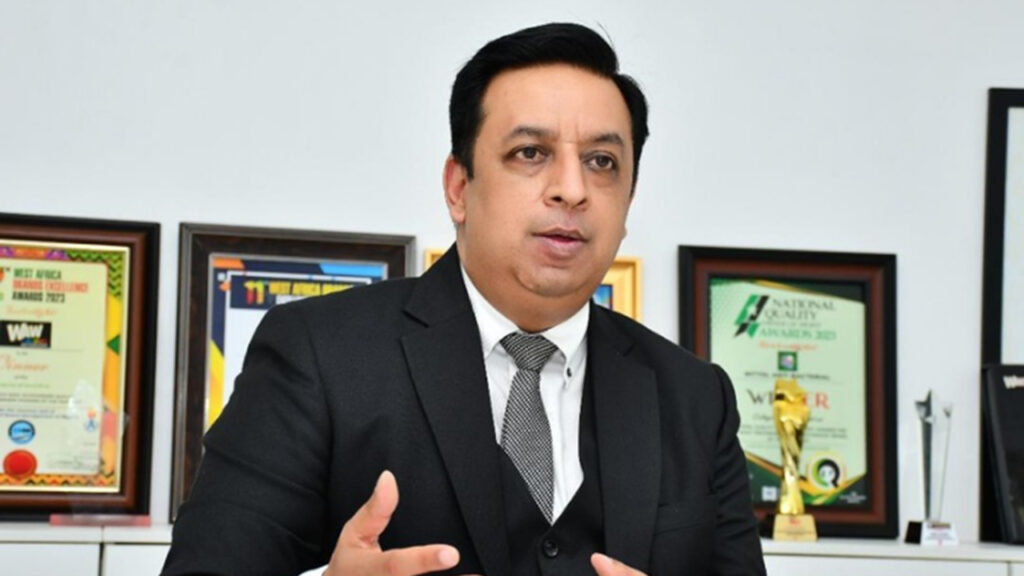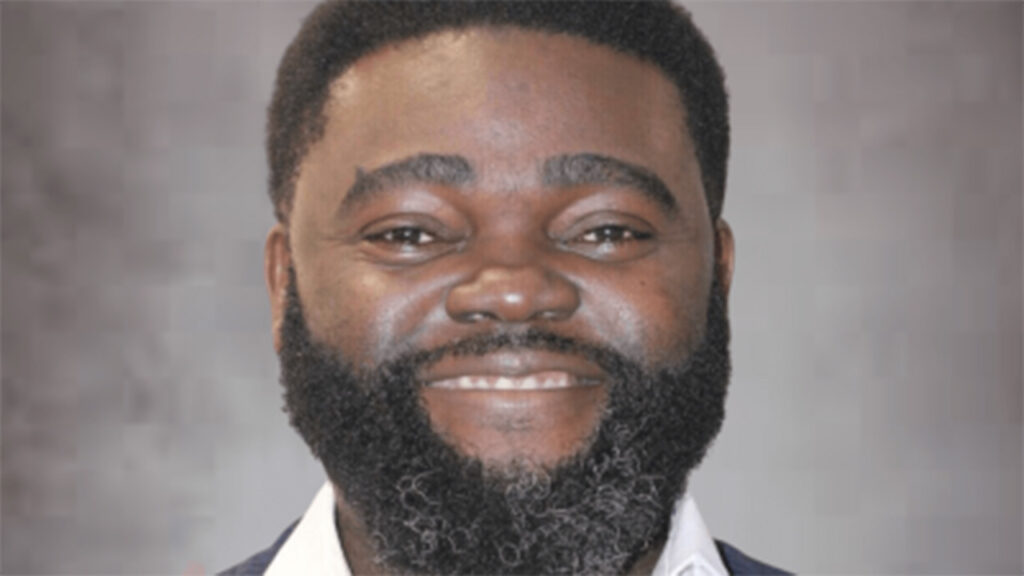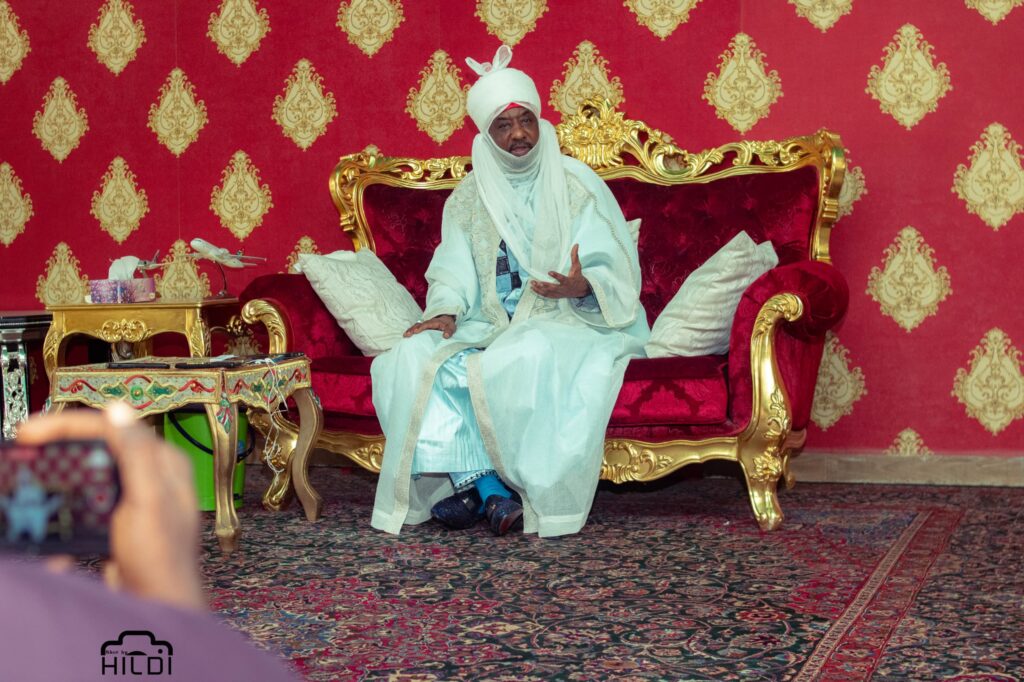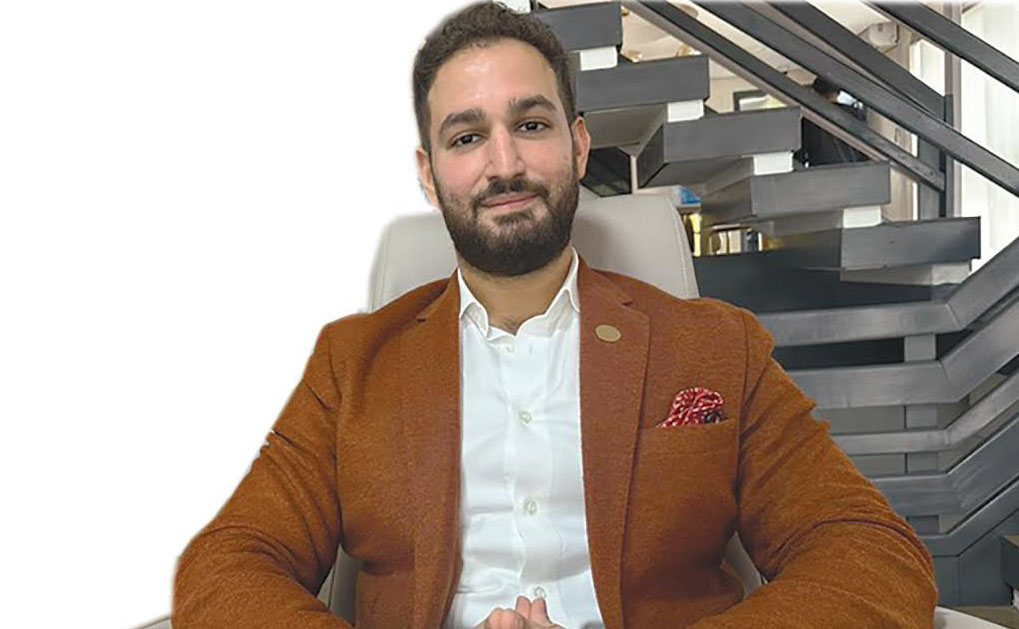 Anthony Okoye is the President of Enterpreneurs’ Organisation (EO), Lagos Chapter, a global network specializing in leading entrepreneurs to learn and grow through peer-to-peer learning, once-in-a-lifetime experiences, and connections to experts. In this interview with FEMI ADEKOYA, he x-rays Nigeria’s enterprise environment, advocating increased freedom for businesses to operate profitably in the country.
Anthony Okoye is the President of Enterpreneurs’ Organisation (EO), Lagos Chapter, a global network specializing in leading entrepreneurs to learn and grow through peer-to-peer learning, once-in-a-lifetime experiences, and connections to experts. In this interview with FEMI ADEKOYA, he x-rays Nigeria’s enterprise environment, advocating increased freedom for businesses to operate profitably in the country.
IN many developed climes, Small and Medium Enterprises (SMEs) are the driving force in such economies, why has it remain a challenge in achieving such feat in Nigeria? In my experience, it’s SMEs that create majority of the jobs.
They create more jobs than the government and the big conglomerates. Even if it is a company of one, employing just one person, it has the opportunity to create more jobs whereas governments or big businesses always have a cap or what they call embargoes. Entrepreneurs want to keep growing their businesses.
EO in Nigeria is quite young, we are about three years old, we have a long term plan to sit with the state government and proffer solutions to the exodus of businesses from the state and country as a whole. For instance, the EO and the White house in America have enormous cooperation because EO is significant at that level. In Nigeria, we are new and we are just reaching out to different organisations such as the ministries of finance and commerce, SMEDAN among others
SMEs are the ones that bring about change, by getting more of them, you create momentum, and when you have momentum, you have movement and when you have movement, you go from transition to transformation. At transformation is where you lift up everybody.
This transformation is not the case here in Nigeria because the business environment is stifling. Many are the challenges of entrepreneurs in Nigeria and in other climes. One of such is the challenge of funding. How do you think SMEs can overcome it? Reduce overregulation.
Small businesses are always paying for one license or the other, this tax or the other and the money is not going back into the company, it’s money the owner of the company cannot reinvest into the business.
SMEs must be intelligent to look at the way they use their money, be consistent in their behaviour, work from an ethical point and really surround themselves with people they can trust. If you have to make a mistake, make it fast, learn fast and do not repeat that mistake.
The good news is that there are a lot of companies that want to give money to the SMEs provided you know what you are doing. As the head of the Enterpreneurs’ Organisation (EO) in Lagos, how do you implement your advocacy agenda especially to the state and Federal governments in ensuring plans and programmes that support SMEs are given priority? EO in Nigeria is quite young, we are about three years old, we have a long term plan to sit with the state government and proffer solutions to the exodus of businesses from the state and country as a whole.
For instance, the EO and the White house in America have enormous cooperation because EO is significant at that level. In Nigeria, we are new and we are just reaching out to different organisations such as the ministries of finance and commerce, SMEDAN among others.
Globally, the mortality ratio of small businesses is about one company to every 7 minutes, which depicts the high mortality rate of businesses. Where does Nigeria stand? Yes, that is a global statistics.
In Nigeria we are not good with data because we do not keep records suffice to say that statistics in Nigeria are more worrisome. What we do in EO is learning. For EO, knowledge is key.
You can fail but you should be able to learn from that failure. Failure is not a bad thing, it is what you do afterwards that matters. If you fail in something, learn from it so that you will not repeat the same mistake again.
If you plan very well ahead, it will reduce the incidence of failures. The key thing is to be informed in the business you are doing, do your due diligence before you start.
There is something about EO is called ‘boldlygo’. It is one of our core values, it advocates that you should believe in your own potential and take calculated risks.
With us, you are thrown into the midst of people who share with you, it is like a brotherhood – people who have gone through the same path you are trying to go now, they teach you not to make the same mistakes they have made in the past.
Through the forum, a forum is made up of about eight people, members of the forum share experiences. They will not advice you but would share experience of what they did when they had similar challenges in their business. People learn one of two things from the sharing experiences.
If you need more than you can get at the sharing sessions, then there is mentorship programme. The entrepreneur is attached to mentors in his areas of business for mentorship.
There is accountability checks to make sure that your overcome the challenges and survive. Trust is important in the Nigerian business terrain and yet it is very scarce to earn.
How do EO mentees keep this in focus? Trust is key. Trust and integrity are critical success factors in businesses. Once you lose integrity, you lose everything. What we do is that we invite successful entrepreneurs that have gone through the process. Most often what you hear is that trust and integrity are rare.
One of our keynote speakers at the last EO learning event in February, Mr. Tonye Cole, Managing Director, Sahara Oil, told us that what he does is to invest in and build relationship to ensure success of his business.
We identify people of integrity and great entrepreneurial spirit who have succeeded in clean ways to speak to young start-ups, they become mentors and our young ones will hear their stories and believe that they can succeed doing things the right ways. Our members share their stories on how they started and succeed.
With integrity, your partners, customers and suppliers feel safe doing business with you. If you have your way with policy makers in the country today, what policy will your advocate to boost entrepreneurship? Too many regulations stifle businesses, creativity and ideas. What I will advocate is possibly a tax holiday for young businesses; the government does not need to harass them with taxes. For instance a 5-year tax holiday for young businesses will not be a bad idea.
This is the time they needed to do all the plowbacks to stabilize the business. Secondly, the government should provide a learning opportunity. For instance, create opportunities with Business Schools such as the Pan African University.
The EO connects youngsters to Business schools. The MIT in America designs programmes young businessmen can attend within a short time – a week or two all aimed at teaching these young guys the way to go.
The government must provide educational opportunities that will thrive entrepreneurial opportunity at a highly subsidized cost or on a totally free basis.
For instance the school can bring somebody like Richard Branson of the Virgin Group, honest businessmen that can share their experiences with them, the students will be there to learn while the government picks the bill.
That is contributing to growth of SMEs. By hearing from people how they succeeded can spur the younger generation on and make sure they do not fail or make mistakes.
Would you say entrepreneurs in Nigeria get a fair deal from the governments – State and Federal? No, not at all. It is very difficult to run businesses in Nigeria. Abroad, financing is very easy.
 All they need is to see your plan, once your plan makes sense, you have a range of options to financing. In Nigeria, I won’t say it is the same because in Nigeria, the cost of funding is very high, so it is tough and also educational opportunities are very limited, credible examples of business are also very scarce.
All they need is to see your plan, once your plan makes sense, you have a range of options to financing. In Nigeria, I won’t say it is the same because in Nigeria, the cost of funding is very high, so it is tough and also educational opportunities are very limited, credible examples of business are also very scarce.
So the terrain is very tough but the good news is that technology has actually come to the rescue. As they say with information technology the world is a small place.
Most learning exercises are now web-based. You can actually get the best education through the web, which means you can get connected to the best brains in world through the web and share experiences.
However, the issue of funding is still a tough one, the issue of infrastructure like power; good roads among others, post a daunting challenge. There is some kind of disconnect between the private sector and government.
We have fought that many years ago and I think the gap is beginning to narrow and more so through education and enlightenment, people will continue to understand the significance of entrepreneurs in providing employment for Nigerians. This is actually the only way; government has stopped being the biggest employer of labour.
It is through entrepreneurs and private businesses that we can solve the challenges of unemployment currently confronting the country. Funding and regulatory pressures are just a few of the challenges of the entrepreneurs in Nigeria, how can they survive amidst all these? For me as an entrepreneur, freedom is the most important thing.
I understand the importance of regulation. However, over regulation stifles creativity and entrepreneurs thrives on creativity, they learn and grow by making mistakes.
In my experience, too much regulation slows down progress. For instance, the United States is a country that supports entrepreneurs greatly, the more freedom they have, the faster they grow the company.
What makes Entrepreneurs’ Organisation different from other organisations? EO is about learning. It is about how we can engage the world leading entrepreneurs to learn and grow and our core values of ‘trust and respect’, ‘boldly go’ and ‘make a mark’.
I was fortunate to attend MIT’s programme called entrepreneur Masters programme at MIT campus through EO and that really was the point of transformation in my life.
It taught me so much, we met some of the world’s business leaders and that was very transforming. EO has been a really great, wonderful people. We are like a family and we encourage people on so many global events.
I came back from South Africa a few days ago, where we attended a program called “Ignite” – it’s about bringing businessmen together to network.
In May, there is also another meeting in San Diego which is a global learning conference. In July we are having the Berlin unlimited, another event. EO is always organizing one learning event or the other.
That’s what makes EO thick – the quest for learning because it’s through leaning and experience that you grow. Does the top echelon of this global body of Entrepreneurs understand that Nigeria’s entrepreneurial landscape has its peculiar challenges? EO is about learning.
The beauty of it is that we are in about 46 countries and each country with its own peculiarities. We have about 146 chapters with about 11,000 members globally coming together to share experiences that will proffer solution to different entrepreneurial challenges.
In terms of funds there is a plan where people are connected to venture capitalists or other fund financiers who can help to source for funds for the business.
However, the fact is that EO is a non-solicitation organization, we don’t ask people for anything because you want to be safe, we do not solicit essentially.
No, not at all. It is very difficult to run businesses in Nigeria. Abroad, financing is very easy. All they need is to see your plan, once your plan makes sense, you have a range of options to financing. In Nigeria, I won’t say it is the same because in Nigeria, the cost of funding is very high, so it is tough and also educational opportunities are very limited, credible examples of business are also very scarce. So the terrain is very tough but the good news is that technology has actually come to the rescue
How do you situate the role of Entrepreneurs’ Organisation in the Nigerian economy? EO is only by invitation. You must have a minimum of one million dollars revenue and the beauty is that it’s a team of peers. In EO, we are very vulnerable to each other, thus, we must all have integrity.
If an EO member knows an EO member, he trusts him totally. He feels 100% safe with me and that way if he wants to expand his business say into South Africa, there is what we call EO Connect through which he can look for members in such business so that they can partner.
Similarly when a member in South Africa is coming into the Nigerian market, he can do same and he will feel safe with him notwithstanding the very obnoxious reputation we have in Nigeria.
This is ensured because there a rigorous screening process before you join EO such that when you join the body, it will give you a platform so that other credible businesses abroad will know that you are credible unlike the general feeling about Nigerian businesses.
The one million dollars minimum requirement to become a member translates to about N200 million. Very few SMEs can attain such turnover.
This looks like a deliberate strategy to make EO an exclusive club to a select few? No it is not. The fact is that we have different programmes.
There is what we call the accelerator programme. This helps those who are making like 150,000 -200,000 dollars to move to 1million dollars. There are some programmes that EO organizes to move people from the lower level to higher pedestal in revenue generation in their businesses.
There is a lot of mentorship programmes in EO. One critical thing is that it enables you not to just focus on money and business, it enables you to have impact in your community, your family and so on. It enhances a total person -we call it EO 360. It is not just about money.
It helps you to organise your business such that you can have time for your family and community. We mentor prospective entrepreneurs so that you can help them develop their businesses.
For instance, the EO Global Students Entrepreneurs’ Awards (GSEA) is a mentoring programme by EO to help participants build their businesses.
They are engaged in competitions that will help them develop their businesses. We do this because we believe the youth is the future of any nation and they need to be encouraged. There are a lot of young Nigerians with smart ideas but lack the finance to translate it to business.
Does EO have a plan to set up a pool of funds, which SMEs and start-up can leverage? EO does not really do this officially but through our relationships.
For instance, we are trying to structure a relationship with the Tony Elumelu Foundation. We also work with the Stamford Centre of Innovation in Africa where they support and train budding entrepreneurs to make sure they are doing the right things while they also help to arrange financiers who will conduct findings and feasibility study to be sure you are qualified for the funds.
The first and primary thing to us is to get you to understand how to structure your business, develop processes so that when you get the funds, you can deploy it appropriately.
As a budding entrepreneur if you have a smart idea and your business plan is good, you will find the funds to invest in your business but officially it might not be through EO but through our different partner organisations. What is your advice to young entrepreneurs? Take chances, be different.
First know why you do what you do. Why am I in this business? Is it just to make money? That is not enough. Millions of people who set out in business to make money don’t last. Know your purpose, when you do, people will buy from you.
Always be excited at taking calculated risks. The EO E360 degrees entrepreneur is the way to go. It includes my business, my family, my community and me and you treat all of them equally because that gives the entrepreneur balance.
The recently concluded Global Students Entrepreneurs Awards (GSEA) is a form of giving back to the community by EO members. It means we are investing in the future of these young boys and girls because they learnt how to do things better, how to engage with others, network and build better and enduring ethical businesses.




